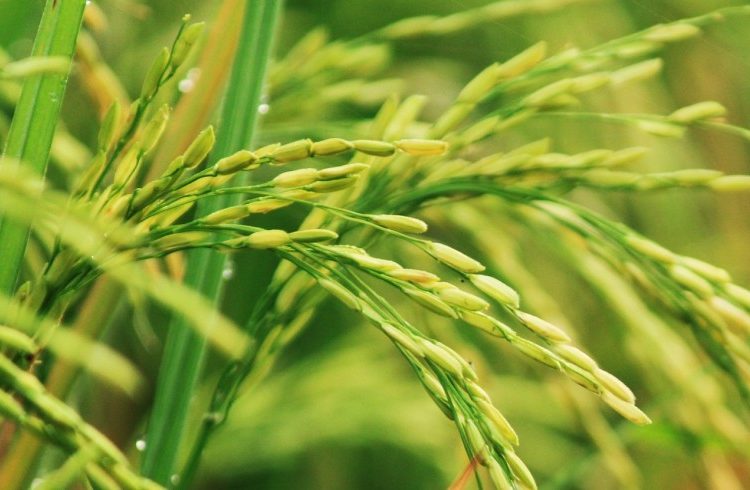“Two important lessons about Cuba in agricultural commerce. First, the will to change is there. Secondly, the policy is solid”, tweeted Rick Crawford, Republican Congressman for Arkansas, a day after revoking an amendment that would have blocked funds to prevent the exportation of agricultural products. His decision was the fruit of, according to him, a pact with a Florida colleague, Mario Díaz-Balart who he promised to change to “a long-term solution which would allow the permanent opening to agricultural change”.
Crawford proposed nullifying the prohibition against giving loans for such purchases, one of the priorities in the tentative attempts of opening economic moves towards the island and that would ease arsenal of impediments that make up the blockade.
“As is required by law, the United States maintains a commercial embargo with Cuba. However, agricultural products are exempt, as long as the export transactions meet certain requirements”, the US Department of Agriculture explained in a public statement in December 2015.
The Congressman told the website Arkansas Online that the his amendment would have only been in force for a year, arguing over the advantages of the alleged agreement with the Republican Senate leadership and the Cuban-American legislators from the south of Florida in order to overcome the obstacle [of the blockade], “eliminating restrictions in the current law which make our products less competitive”.
The state that Crawford represents in Congress has interests in the Cuban consumers, especially in the rice that they serve on their tables – a product that occupies the number one position in the plans for agricultural invasion in the dreams of the thaw. Crawford himself estimated that the potential business is worth a billion dollars.
“Right now Vietnam is the main providers of rice and it takes about 36 days to get a shipment, when you can get one from the USA in 36 hours”, the legislator declared.
The governor of Arkansas, the Republican Asa Hutchinson, made these intentions clear during his visit to Havana at the end of September 2015. Cuban diplomats visited the state in mid-April of this year, pointing out to local agricultural business people what to do to get their products in the largest market in the Caribbean.
Hutchinson’s visit coincided with the presence in Cuba of the then-president of Vietnam, Truong Tan Sang, who on that occasion announced a donation of 5 million tonnes of grain to the island.
“The rice produced in Arkansas has a long grain variety that is a favourite of Cubans” said the US embassy in Cuba’s deputy chief of mission, Juan Lamigueiro Leon, quoted by the website of a local university. “We are ready to import this variety from Arkansas. The only problem we have is related to the restriction held in force by Congress, the so-called embargo…. trade between Arkansas and Cuba cannot rely on commercial loans.”
During his recent visit to Washington, the Cuban Minister of Agriculture, Gustavo Rodríguez Rollero commented in a business forum how his country needed long term financing plans, a point outlined on the US Chamber of Commerce’s website as one of the expectations of the island in its new relationship with its northern neighbour.
The fact is that the congressperson Díaz-Balart and Ileana Ros Lehtinen achieved their goals of avoiding a vote on the matter in the full House of Representatives.
Pitting the “yes” against the “no” would have served to gauge the levels of legislative support or opposition to the facilitation of agricultural exports to Cuba. Another of the amendments, presented by the representative Mark Sanford, sought to authorise unrestricted travel for American citizens to the Caribbean archipelago. Travel is currently restricted to twelve categories. Stanford also withdrew his proposal.
Under the present legislation, the Chamber of Congress has only approved measures against normalisation efforts made by President Barack Obama, although the threat of executive veto and internal negotiations on Capitol Hill in Washington rule out its inclusion in the final version of the law, and its entry into force.
Crawford’s amendment was followed attentively on both sides of the Florida Straight.
The political group Engage Cuba drew optimistic conclusions from the agreement between the Republican legislators of Cuban origin: “even the strongest opponents against the lifting of the embargo on Cuba have realised that that their position is not sustainable.”
The involvement of the Republican leadership in favouring the agricultural credits is not new if you are aware of the antecedents of Paul Ryan, head of the House of Representatives, who in the past has voted in favour of an opening of this kind, although at present he is against this chapter of Obama’s foreign policy.
This week members of the Arkansas Rice Federation have travelled to Cuba to discuss the future of trade between Cuba and the USA with the island’s authorities. The delegation, which included the Secretary of Agriculture for Arkansas, Wes Ward, had access to Cuban officials who brought the group up to date with the agricultural situation in the country. They also met with representatives from the Ministry of Education, the Ministry of Foreign Trade, the University of Havana and Alimport. Before, the Arkansan delegates where with Crawford, who considered the possibility of increasing the efforts of lifting the commercial restrictions with Cuba.










